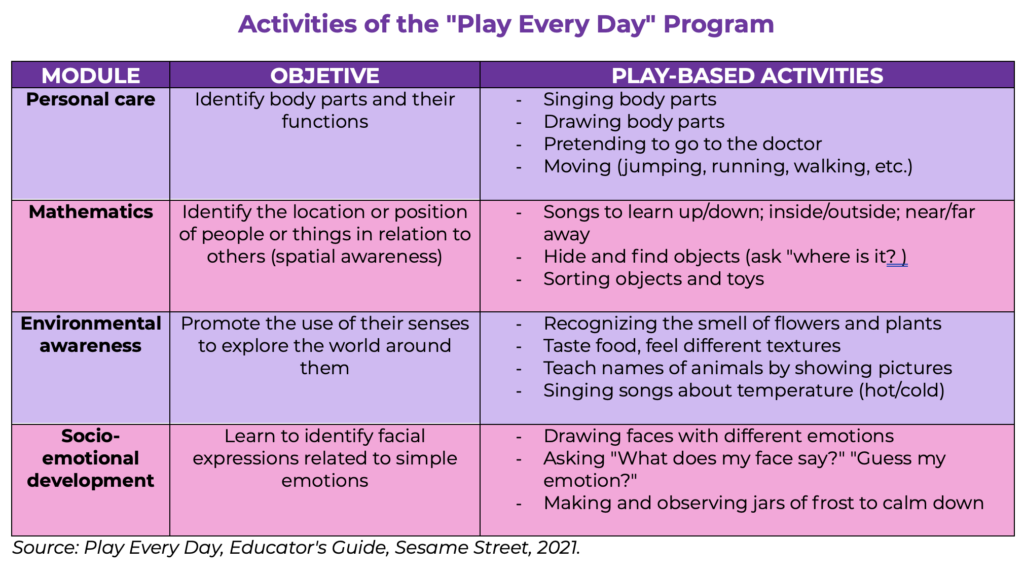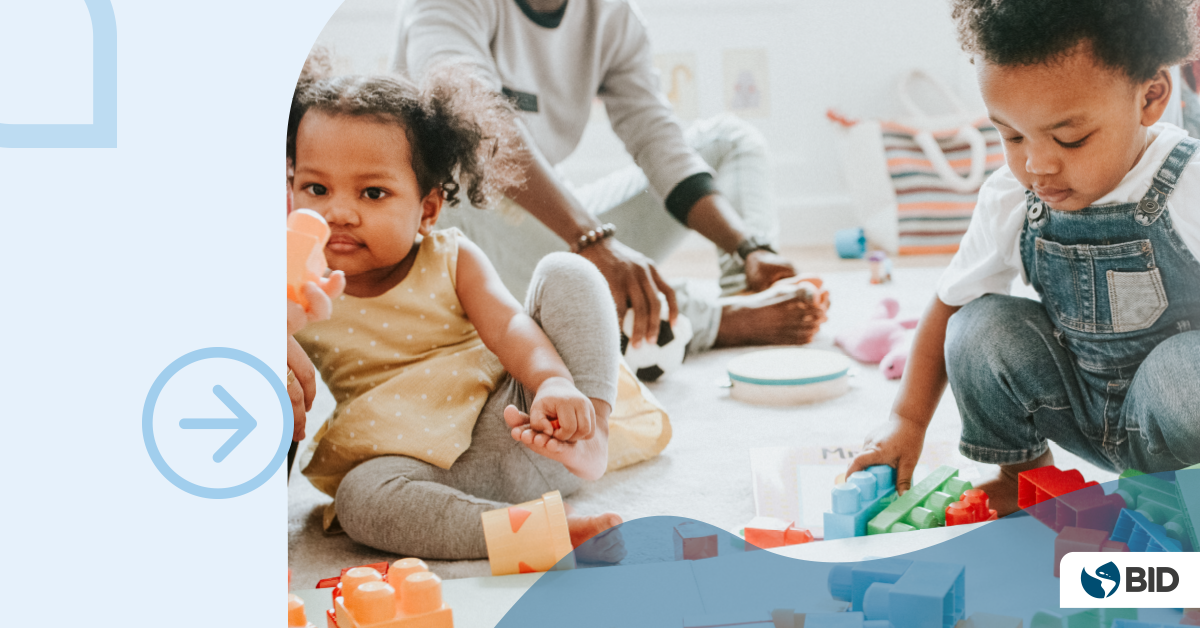Play-based learning is, in essence, learning through play. This pedagogical approach during early childhood stimulates physical, social, emotional and cognitive development. Play improves brain structure and promotes executive function, enabling children to pursue goals and increase their ability to concentrate. On International Day of Play, we highlight the importance of parents and other caregivers playing with their children to promote their development.
Why Is Play Important During Parenting?
Through play, young children interact with their context and establish social and emotional bonds: it represents an ideal opportunity for parents and caregivers to strengthen their interactions and engage with their children. During play-based learning, adults become active partners, providing children with guidance and “scaffolding” of the environment. These interactions can also be promoted through other actors who take on the role of caregiver to the child. In other words, play is a valuable activity that can be intentionally carried out at home, at school or in the child development center.
What Do We Know About Game-Based Learning in the Region?
In Latin America and the Caribbean, home visiting models such as Reach Up in Jamaica, Cuna Más in Peru and Creciendo con Nuestros Hijos in Ecuador, which use play as a key strategy to promote quality interactions between children and caregivers, stand out.
In terms of center-based care, the region’s progress in the coverage of care for children under 3 years of age and preschool education for children 4 and 5 years of age is noteworthy. However, the quality of interactions between caregivers and children remains a pending challenge. While free play is a common and important component of preschoolers’ daily routines, the potential of play as an intentional educational strategy to develop specific skills is underutilized in the region. By strategically incorporating play into preschool curricula, educators can guide children’s innate desire to play toward specific learning goals, such as improving language skills, math skills, or social competencies.
Similarly, little is known about the use of hybrid interventions (combining face-to-face and distance contact) to promote play-based learning. Further exploration of this topic is key, as these modalities have been emerging with great potential to promote child development in the wake of the pandemic.
Play Every Day: Innovation with Impact in Mexico
Against this background, a hybrid parenting program for play-based parents in a low-income setting that combined face-to-face and distance support for caregivers of young children stands out. It was implemented and evaluated in the state of Morelos in Mexico. This is one of the first rigorous evaluations of a hybrid parenting program in play-based child development.

The model was based on Sesame Street’s “Play Every Day” program and aimed to promote the development of cognitive and socioemotional skills of children between a few weeks and 47 months of age through child-caregiver play.
The program was incorporated into CONAFE (Consejo Nacional de Fomento Educativo) early education service units in Mexico. CONAFE’s Promotoras Educativas were trained in the implementation of the intervention. For 12 weeks, they guided the caregivers in carrying out a weekly learning activity through play around four thematic axes (self-care and autonomy, mathematics, environment and socioemotional development).

These activities were initially planned to be carried out in person, but due to the COVID-19 pandemic, instructions were shared via WhatsApp through audio cards and virtual stickers with Sesame Street characters. In addition, a small box with a printed card per play activity was mailed to each family.
The program was rigorously evaluated through an experimental evaluation to measure its impact. A total of 904 caregivers and 118 Promotores Educativos participated, and participants were randomly assigned to the program at the household level. A qualitative study complemented this assessment of caregiver-child interactions by coding videos of interactions and in-depth interviews with caregivers and educators.
The results of the intervention were very positive. Significant increases were evidenced in the quality of interactions and in the time caregivers spent in activities with their children: reading books/looking at pictures, singing songs and playing with toys.
This study demonstrates that increased knowledge of play activities and their importance for development increases the quality and frequency of their interactions with children, leading to improved child development outcomes.
Find out more about the impact and methodology of this program in the publication: Hybrid Parenting for Play-Based Early Childhood Development: Experimental Evidence from Mexico.
This project is funded by the Early Childhood Development Innovation Fund, a partnership between the Inter-American Development Bank (IDB), FEMSA Foundation, Bernard Van Leer Foundation, Maria Cecilia Souto Vidigal Foundation and Porticus. It currently has a portfolio of 25 projects located in 10 countries, including a Knowledge Hub and a Community of Practice for the entire region.


Leave a Reply